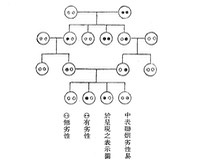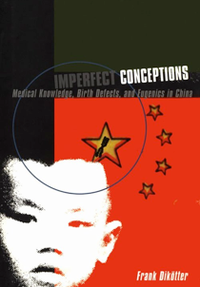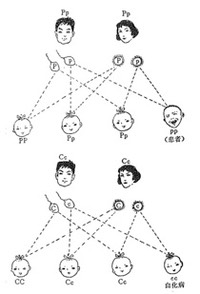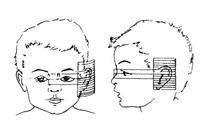Not without resemblance to Confucian notions of self-cultivation and self-restraint, the mass education campaigns in reproductive health and the medical knowledge dispensed to prospective parents are meant to ensure the participation of each individual in the regeneration of the nation. Where couples fail to reproduce eugenically, the state can intervene in the name of collective health. Numerous publications advocate the elimination in utero of foetuses defined as 'defective'. According to Zhou Xiaozheng, affiliated with the Population Research Centre of Beijing University, widespread prenatal testing should warrant the detection of 'monsters' (jixing'er) at an early stage of pregnancy, while the abortion of foetuses with minor defects such as a harelip or supernumerary fingers could take place between the eighteenth and the twentieth week. The moral value and economic meaning of euthanasia have been regularly underlined in journals on demography and medical ethics at least since 1990, while the elimination of new-born infants with severe malformations is rarely seen to pose any particular ethical problems. Professor Zhao Gongmin, a Fudan University graduate in biology with a specialisation in genetics and a Fellow of the Chinese Academy of Social Science, considers the social benefits of euthanasia to outweigh any moral considerations: 'As to those already born and afflicted with severe inherited malformations, such as cretins with a stretched tongue (shenshe chidai, children with Down's syndrome) or babies suffering from hydrocephalus, their intelligence is very low and even if they can survive, they will never be able to work and live independently, giving their families endless misfortunes, increasing the burden on society and adversely influencing the quality of the population. Painless euthanasia at the moment that such babies appear to the world, it should be said, is a eugenic measure that will benefit the country and the people.'

In an article published in the respected Sociological Research and reprinted in the April 1991 issue of Demography, Mu Guangzong, a lecturer at the Population Studies Centre of the People's University and one of the most vocal proponents of euthanasia, proposes a sociological definition of medical death called 'zero worth' (ling suzhi): individuals are intrinsic parts of a larger collectivity, and their worth is defined by the contribution they can make to society. As 'inferior births' have 'zero worth' and make no such contribution, society has the right medically to eliminate them. According to Mu Guangzong, the warning of the great Victorian scientist T.H. Huxley should be heeded: if the quality of life is not strictly controlled, bad genetic mutations will accumulate and mankind will head towards suicide.
Euthanasia is seen as a means to achieve a 'scientific humanism' (kexue rendaozhuyi) that protects society against 'counter-selective' forces (ni taotai) represented by disabled infants. Writing five years before the 1996 controversy of the 'dying rooms', in which a 'Channel Four' documentary on the British television channel claimed that certain orphanages deliberately starved some abandoned children to death, Mu deplores the 'zero worth' of orphans with disabilities who survive in state welfare institutions: just as eugenics prevents the birth of 'zero worth' beings, euthanasia should ensure their controlled death. Cong Li, on the other hand, proposes to screen and select (shaixuan) new-born babies in order to 'select the superior and discard the inferior' (xuanyou qulie); this is because eugenic policies are inadequate to prevent defective births. One of the few to consider the need for approval from both parents, the author also wishes to confine euthanasia strictly to grave hereditary diseases. However, as medical knowledge concerning genetic diseases expands, it is predicted that the number of cases to be eliminated by euthanasia will increase, leading to an ever more eugenic society. More recently, an article written by Zhou Xianzhi, an associate professor at the Hunan Institute for Finance and Economics, and Li Xiaowei, a doctor attached to the Institute's Department of Obstetrics, has also advocated 'superior death' (yousi) for defective children, including those judged to be mentally retarded, as the necessary component of a programme to ensure 'superior births' (yousheng).
The costs of maintaining congenitally handicapped people is often invoked to justify eugenic legislation. Chen Muhua, Vice-President of the Standing Committee of the National People's Congress and President of the Women's Federation, declared: 'Eugenics not only affects the success of the state and the prosperity of the race, but also the well-being of the people and social stability.' The Eugenics Symposium over which she presided in Beijing on 28 January 1989 judged that more than 30 million people in the People's Republic were genetically defective: the total cost of their maintenance was estimated at seven to eight billion yuan a year, and the Symposium advocated eugenic education and legislation. In another example, Gao Jinsheng, based at the Suzhou Medical Institute, estimated the costs of maintaining people suffering from 'congenital idiocy' in 1985. Similar to the articles and charts depicting the costs of keeping alive the impaired at the expense of the healthy in a number of European countries throughout the 1930s, meticulous calculations are made to estimate that each patient costs exactly 25 yuan and consumes about 25 jin of cereals every month. The total costs incurred by the state thus amount to approximately 3-400 million yuan and 3-400 million jin of cereals a year. A diseased element surviving thirty to fifty years costs 10-15,000 yuan.
The first national exhibition on eugenics and the scientific control of human reproduction, entitled 'Human Reproduction and Health', which opened in the Shanghai Exhibition Centre on 23 November 1993, used graphs to illustrate the 'heavy burden' represented by the country's handicapped people. In these official calculations, human life is gradually reduced to financial terms, while population health is seen as a negative balance sheet to be redressed in the interests of public well-being. The lives of disabled people are described as not worth living; they are perceived as a financial burden and a drain on public resources, and a mere figure is adduced to illustrate the useless dissipation of costly medications. Perfection is thought to reside in a set of reified medical standards.


